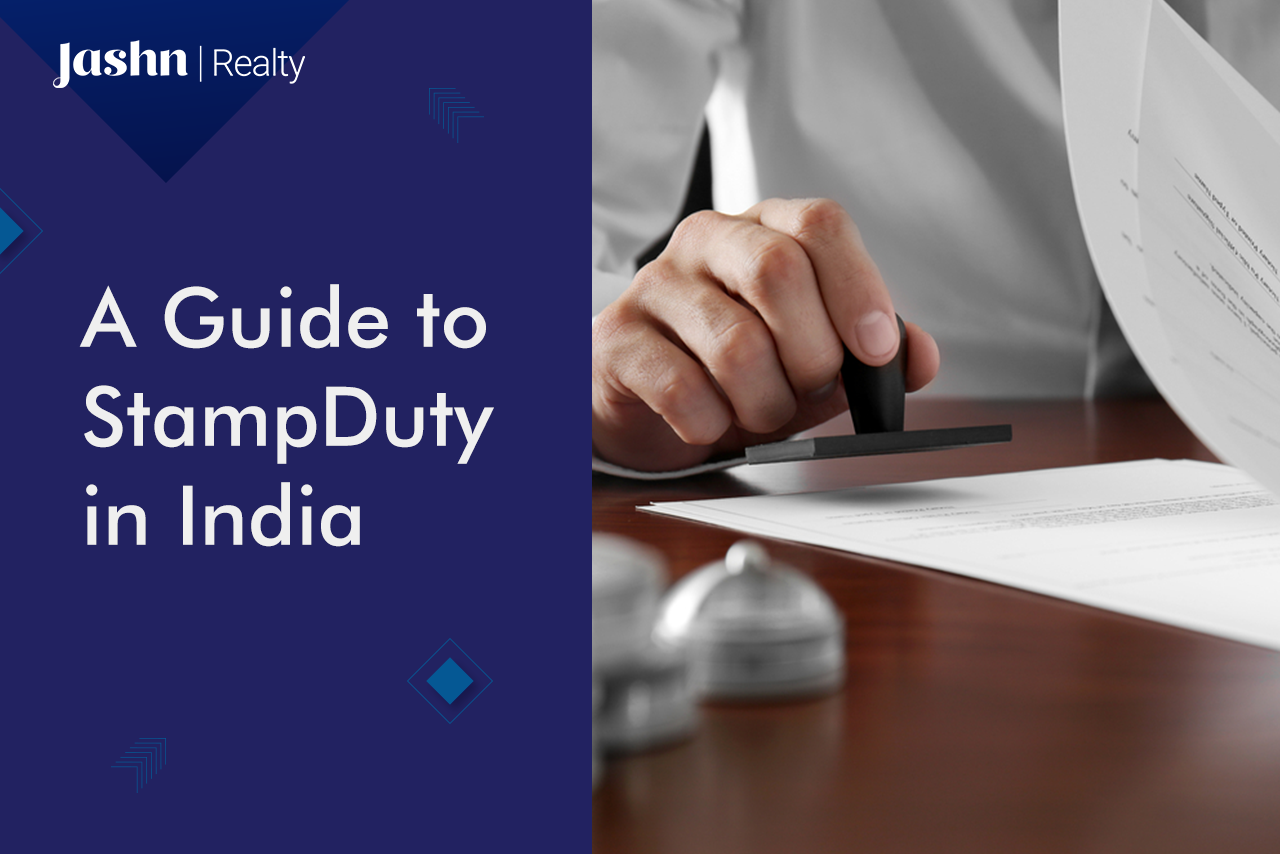Did you know buying a property in India involves stamp duty? Now comes the question of what it is and how it affects property value. In simple words, stamp duty is the tax the government imposes on a property that you intend to buy. Once the sale agreement, loan application, and down payment are done, the final step involves registry. Stamp duty comes into play when you proceed with property registry.
Possession is when the property ownership is physically transferred to you. But that’s not enough. Stamp duty during the registration confirms that you’ve paid tax for getting the property transferred to you. In this blog, we will discuss stamp duty, its usage, and its benefits.
A Step-by-Step Guide to Stamp Duty in India
What is stamp duty?
Stamp duty is a state-levied charge that a property buyer pays to the government under Section 3 of the Indian Stamp Act, 1899. The buyer needs to pay the stamp duty on time to avoid penalty. Since the charges are paid to the government, it validates different transactional documents like agreements and deeds and supports you during legal claims in case of disputes. You can submit it in the court to prove your claim. So, it’s one of the most important documents required to buy a property.
Who is liable to pay stamp duty — buyer or seller?
In most cases, the purchaser of the property pays the stamp duty in India. In the case of exchange, it is borne by both involved parties.
When can you pay the stamp duty in India?
You can pay the stamp duty during the property registry. The timings of stamp duty payment vary from one state to another. Some states make it mandatory to pay before documentation, while others allow you to pay within the stipulated timeframe after registration.
How stamp duty is calculated?
The state government decides the rates of stamp duty. It goes from 3% to 10% of the property value. Location, gender of the owner, and type of property also determine the stamp duty rates.
Suppose as per the circle rate per square feet, if the cost of a flat in Lucknow is Rs 40 lakh but the transaction amount is Rs 50 lakh then stamp duty will be calculated on the higher (transactional) amount.
What factors influence stamp duty?
The stamp duty in India is determined by many factors that include:
- Property type
- Market value of the property
- Circle rate
- Gender of the buyer
- Intended use of the property
Can stamp duty be refunded?
If the sale deed is cancelled by any party within six months, then you can claim the refund of stamp duty. However, it will come after a deduction of administrative charges amounting to 10% of the stamp duty.
Make sure the property is registered within the Land Records Office, and there is an acknowledgment receipt of the stamp duty.
So before confirming the payment plans for homebuyers, sellers should inform them about the stamp duty they’ll own during registry. This will help them strategize their finances accordingly.
Conclusion
Stamp duty is the government charge that you pay while buying a commercial or residential property. Though the fee is imposed by the central government, it varies according to the state’s rules and regulations. Stamp duty validates the transaction and supports you legally.



